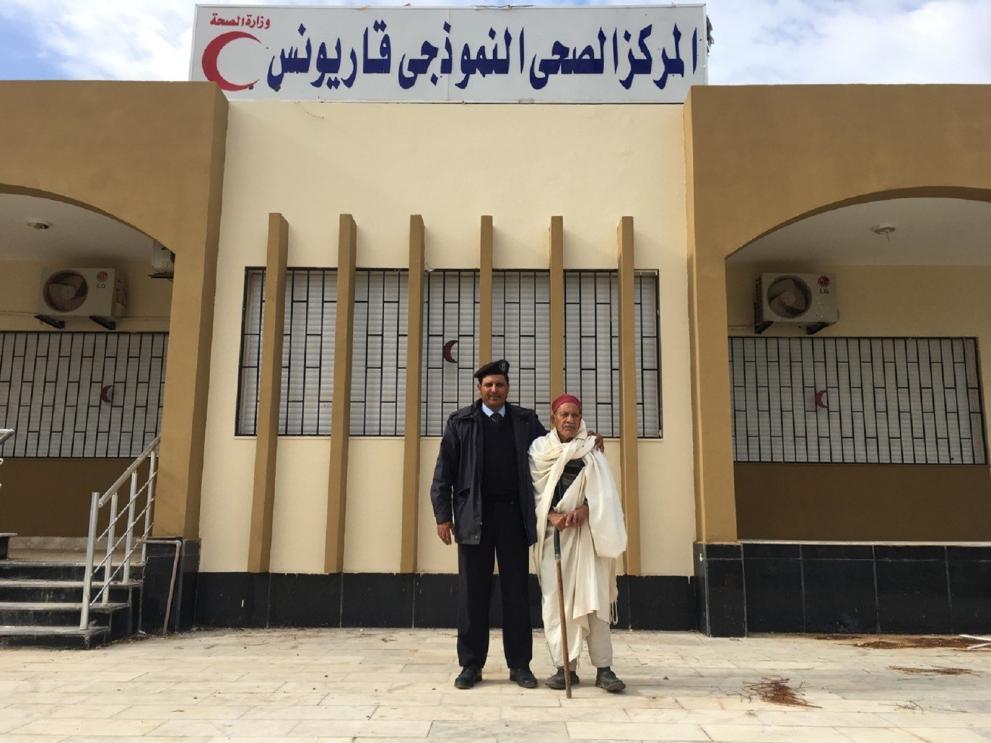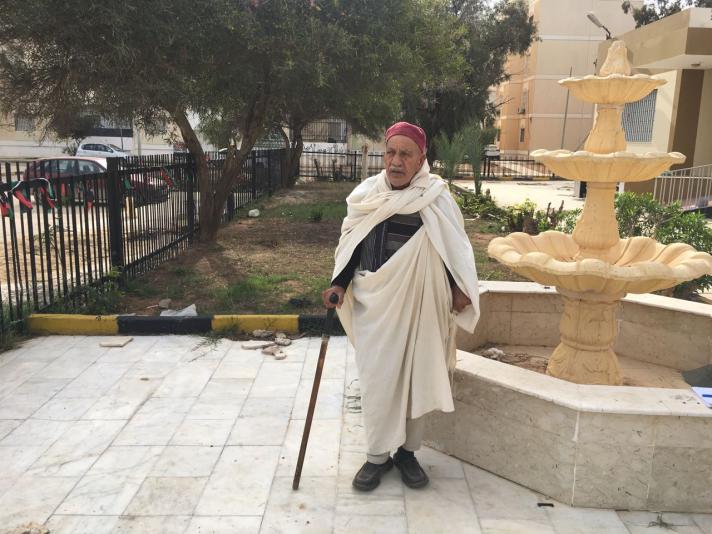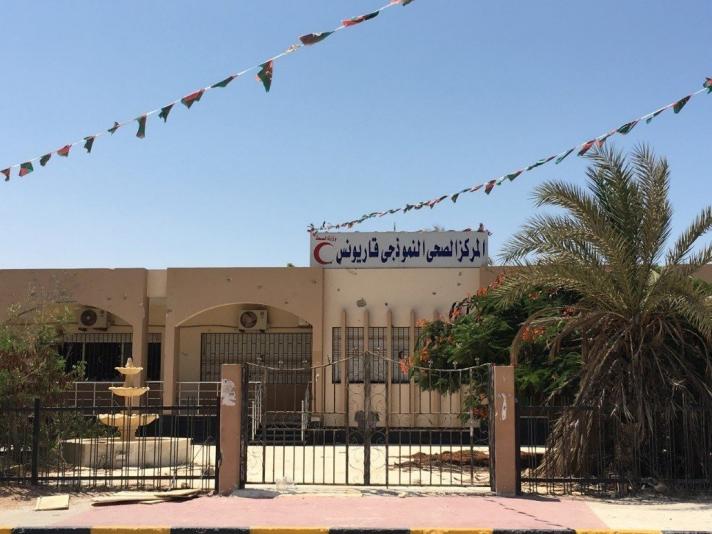
Garyounis is a district with 15,000 people in southern Benghazi in Libya. The terror of the war during the last years is still fresh in people’s memories. Ali Alrayani, 92, has war memories dating back to the Second World War, when he was fighting in the desert.
For more than 50 years, Ali has been living close to Garyounis Clinic, which was severely damaged during the last three-years fighting. An initiative funded under the EUTF for Africa and implemented by UNDP is currently renovating the clinic. Ali goes every day to see how the works are progressing. "It is great to see how the clinic is coming back to life. Having access to healthcare is crucial for people in our town”.
Highlights
-
To respond to the many challenges people in Libya are facing, with fund from the European Union, UNDP is implementing a three-years initiative which goal is helping the local authorities to restore security, essential services delivery and livelihoods opportunities.
-
The project is being managed in close cooperation with national and international partners. The aim is to strength local authorities’ capacities to serve the people in Tripoli, Sabratha, Sabha, Murzuq, Bemghazi and Al Kufra.
The project "Strengthening Local Capacity for Resilience and Recovery in Libya" is helping renovate the clinic by closing cracks and holes and replacing doors and windows. In April, the clinic will open its doors again.
“The plan is to be back to the operating room as soon as the rehabilitation works are finished,” said Dr. Mohamed Alzawi, manager of the Clinic. “At the beginning, we will be running the center with the little equipment available, and we will do our best to get new equipment to provide the essential healthcare services people need.”
Ali enjoys witnessing the ongoing rehabilitation of the clinic, sharing with the workers his old stories.
“Once the clinic opens again, we won’t have to go that far and spend so much money. It will be particularly helpful for people who cannot afford to go to private clinics and hospitals,” said Ali.
“My wife suffers from high blood pressure and heart disease, so I experienced it [lack of health services in Garyounis] very often. Sometimes, I had to take her to Benghazi medical center two times a day. On other occasions, I took her to private clinics which are very expensive. It is very difficult for me to cope with these expenses,” he explained.“When the clinic was operational, we could take our family members there by foot. Now we have to go to the city center or to a private clinic which burdens the families as it is more expensive and at times unsafe due to the security situation,” said Ali.
In 2014, Garyounis clinic was providing healthcare services to over 120,000 people- from general care, laboratories, radiology to mother and child care services. “I have seen people coming from Beida city (200 km east of Benghazi) and others coming from Ajdabia and Geminis cities (160 and 50 Km south west Benghazi). That's because of the very good reputation of the clinic and its staff,” said. Mansoor Burawi, security officer at the clinic.
“Opening the clinic again will bring more stability in Garyounis and its surrounding areas,” added Dr. Mohamed.
“I have been working in this clinic for almost 6 years and I have lived its best times, when it won the "ideal clinic" prize in Benghazi back in 2013. I am eager to see the clinic back to life,” concluded Mr. Mansoor.
The rehabilitation of the clinic is among the key priorities identified in different consultations with over 50 people, including improving municipal services, fostering local business, enhancing the role of civil society and young people.
***
With the support of the EUTF for Africa, to respond to the many challenges people in Libya are facing, UNDP Libya is helping the local authorities to restore security, essential services and livelihoods opportunities. UNDP works in key communities on the migration routes – from Sabha and Murzuq, to Kufra, and Sabratha, not least Benghazi and Tripoli - engaging municipalities, enhancing stability and community security, advancing municipality socioeconomic development and providing income generation opportunities especially for young people. With adequate support, municipalities in Libya can better plan, lead and coordinate efforts at achieving progress where people need it the most.
This project is implemented in the framework of the programme "Managing mixed migration flows in Libya through expanding protection space and supporting local socioeconomic development" financed by the North of Africa Window of the EU Emergency Trust Fund for Africa.
More information about 'Managing mixed migration flows in Libya through expanding protection space and supporting local socio-economic development': https://ec.europa.eu/trustfundforafrica/node/421
Details
- Publication date
- 16 March 2018
- Region and Country
- Libya
- Thematic
- Improved migration management
- Partner
- United Nations Development Programme


